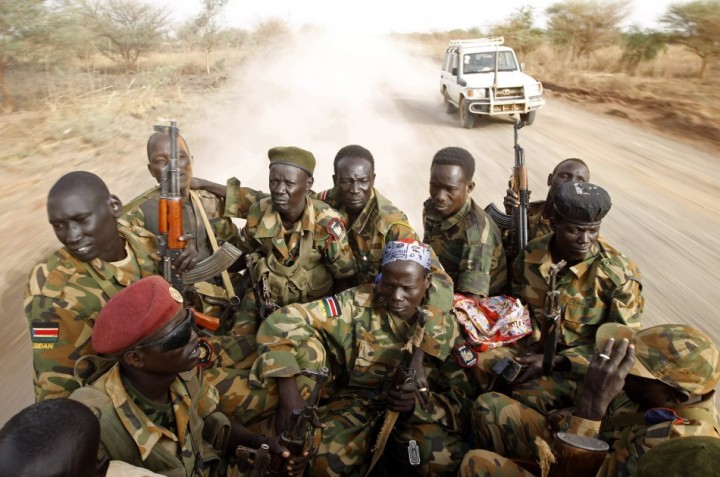
Uganda on the spot over European arms supply to South Sudan

The Ugandan government has come under scrutiny over its involvement in the funneling of European arms and ammunition into South Sudan.
A weapons monitoring group report released on Thursday, indicates that the east African nation is said to have helped South Sudan circumvent the arms embargo placed by the European Union.
British-based Conflict Armament Research (CAR) said South Sudan arranged for the Ugandan government to provide end-user assurances for purchases of weapons and ammunition from Bulgaria, Romania and Slovakia.
According to the report, weapons were delivered to Uganda in 2014 and 2015 then transferred to neighbouring South Sudan.
“We have a paper trail from point of manufacture, through export to Uganda, through diversion to South Sudan, and to the recovery of the weapons on the battlefield,” said James Bevan, head of CAR.
Reuters reports that Uganda’s military spokesman declined to comment on the accusations until he had read the report. South Sudan’s government spokesman declined requests to comment by phone and email.
The report documented how senior South Sudanese military officials were involved in this process from beginning to end.
South Sudan’s President Salva Kiir signed a peace deal with rebel factions in September. A previous peace deal signed in 2015 fell apart a year later after clashes broke out between government forces and rebels.
Since 1994, the European Union has maintained an arms embargo on Sudan. It extended the ban to cover South Sudan when it split from Sudan seven years ago.
CAR, which identifies and tracks weapons and ammunitions in war zones, said there was no suggestion that the European countries exporting arms to Uganda were complicit or even aware the arms were diverted to South Sudan.
Nonetheless, the re-transfers from Uganda to South Sudan may have breached end-use or non-transfer commitments made to exporters as a prior condition of sale, the report said.
The report documented hundreds of weapons and over 200,000 rounds of ammunition used in the conflict across South Sudan.
More than 383,000 people may have died as a result of the South Sudan’s civil war, with around half of the lives lost estimated to be through violence, according to a study published in September by London School of Hygiene and Tropical Medicine.






